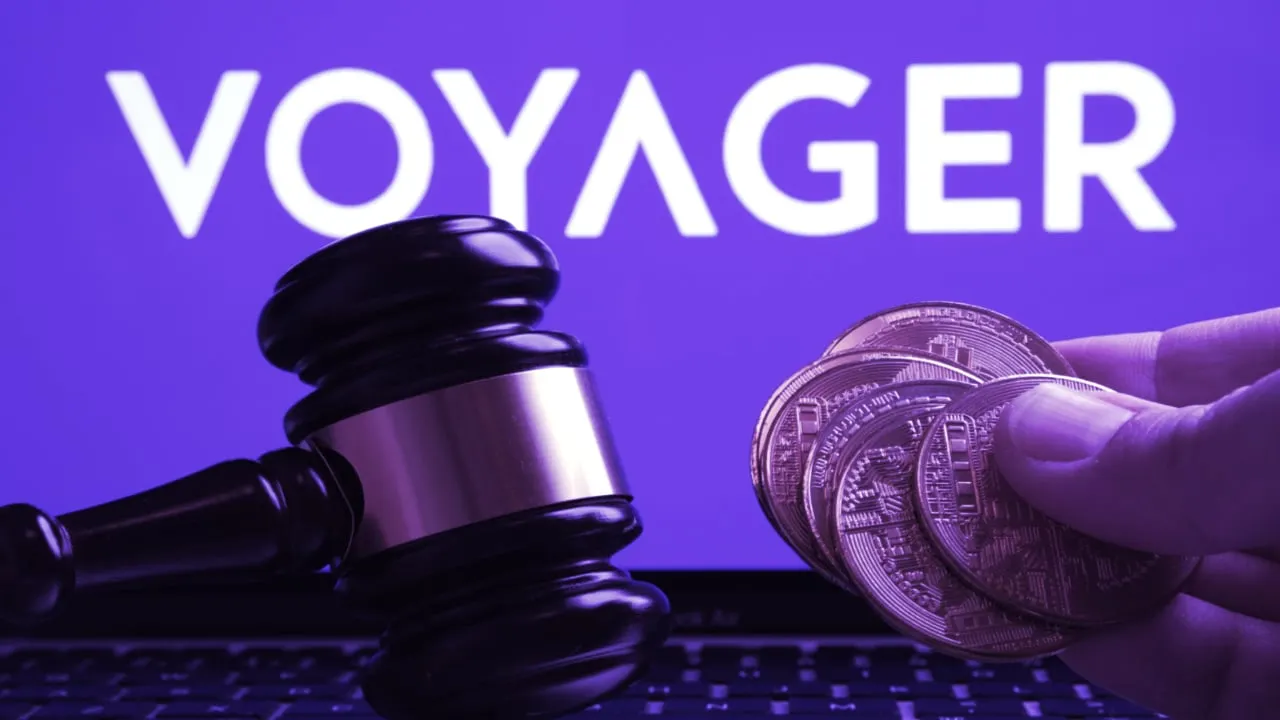Sam Bankman-Fried’s FTX may have been hailed as the savior of the crypto winter, but in the latest twist in its acquisition streak, the company has been accused of low-balling one of its rescue offers.
Bankrupt crypto brokerage Voyager Digital has called a rescue deal proposed by FTX “a low-ball bid dressed up as a white knight rescue” in documents filed to bankruptcy court in the Southern District of New York on Sunday night.
Voyager said that the joint proposal made by FTX and Bankman-Fried’s other firm Alameda was “designed to generate publicity for itself rather than value for Voyager’s customers.”
Voyager further claimed that the way the proposal was made, via a public press release, could jeopardize a separate bidding process for the company’s assets, which is happening privately.
“The AlamedaFTX (sic) proposal is nothing more than a liquidation of cryptocurrency on a basis that advantages AlamedaFTX,” the documents said.
Voyager filed for bankruptcy protection on July 5 of this year and at the same time put forward a plan for how to reorganize the company and return cash to investors.
But it has also been exploring alternative proposals through discussions with more than 80 third-party investors and has asked for indications of interest from potential buyers by this Friday.
Unpacking Voyager’s court claims
In the new filing, Voyager outlines several issues it has with FTX and Alameda's proposal, including the allegation that the bidder “openly disparaged” Voyager and included statements in its press release that are “at best, highly misleading.”
One sticking point is Alameda and FTX’s assertion that Voyager customers are entitled to a fixed amount based on the value of their wallets on July 5, when the exchange filed for Chapter 11 bankruptcy protection. But Voyager disagreed with this premise, and said its own plan for reorganizing the company does not cap customer claims in this way.
The rescue deal would also effectively eliminate the platform’s own VGX token, which Voyager estimates would immediately destroy $100 million.
Other issues raised include the tax burden on customers wishing to withdraw cash, as well as confusion over the fact that FTX has said the Voyager brand has no independent value, but would want a discount on its acquisition price if the brand was sold to someone else.
FTX’s ‘white-knight’ deals
Voyager is just one of a handful of distressed crypto firms that FTX has eyed amid the fallout of the market downturn. Last month, it acquired Canadian exchange Bitvo, and is currently in the process of buying troubled lender BlockFi.
Bankman-Fried has spoken of FTX’s “responsibility” to stabilize the crypto ecosystem by stepping in where possible, a concept that was also noted in FTX’s proposal to acquire Voyager’s digital assets and loans. In a document outlining the benefits of the proposed transaction, Alameda and FTX said it was in their interest to show that “crypto business can be resolved like other financial institutions,” thereby buoying confidence in crypto as an asset class.
In a Twitter response to Voyager’s latest court filing, Bankman-Fried characterized objections to FTX’s offer as “the ‘please give us some excuse to charge more fees on the estate’ parade.”
Bankman-Fried also added that the bid was motivated by a desire to get customers their money back before it could be drained by the bankruptcy process.
“Well, lots of parties were trying to bid $0.10 on the dollar for the assets,” he wrote. “If a customer had $100 on the platform, a third party would pay $10 for it, get whatever funds remained (maybe $75), and then the customer... gets back $10.
7) And meanwhile, Voyager's consultants would be slowly draining the remaining funds by charging fees every month the bankruptcy process dragged on.
This didn't seem right to us. Customers already lost assets; we didn't want them to lose more.
— SBF (@SBF_FTX) July 25, 2022
Voyager has asked for potential buyers to signal their interest by this Friday so that it can determine whether there is a better alternative to its own plan.
In its proposal, FTX said it had no issue with this process continuing alongside discussions of its own bid for Voyager’s assets, and that Voyager could then decide whether to sign an agreement for its deal based on what other offers are received.
If Voyager does change its tune and decides to go with FTX in the end, then the deal could be done as soon as this weekend, according to FTX’s initial timetable.

